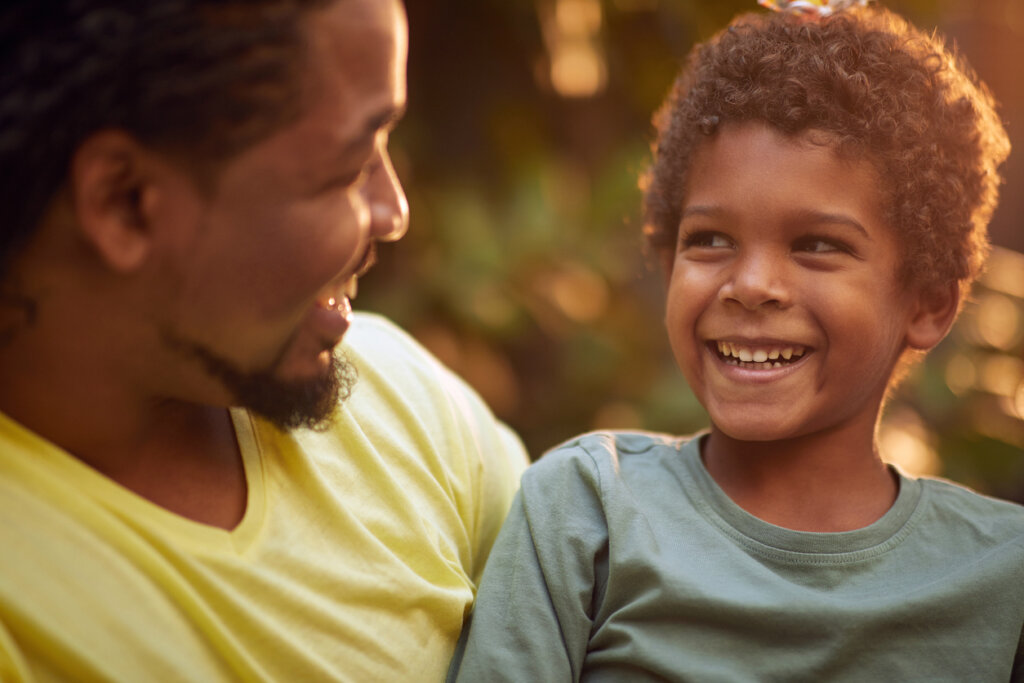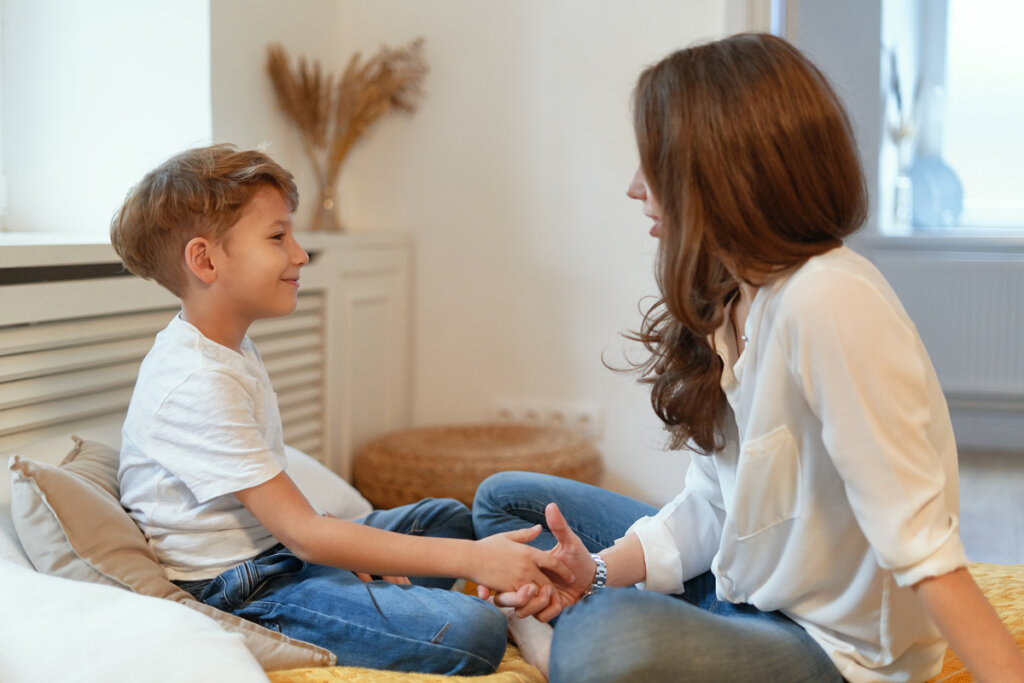How to Educate Your Children With Positive Discipline

Have you ever wondered if there’s a way to educate your children that you’d enjoy? Or, if you could somehow understand what’s behind your child’s bad behavior and be able to understand it in a constructive way for both of you? Two of the options you could choose are respectful parenting and positive discipline. They involve educating with mutual respect and collaboration.
Throughout history, educational methods have been rooted in the use of punitive disciplines. These have always been based on punishment, something that has negative effects. However, in looking for alternatives, parents often go to the other extreme and give the child an exaggerated permissiveness.
As an effective alternative to these two educational models, respectful parenting has emerged. This is based on the collaboration between parents and children. It’s based on respect, involving the child in responsibility and autonomy, affection, empathy, and freedom of action.
From the point of view of this new paradigm, as in the model of positive discipline, there are no good or bad children, but simply good and bad behavior. Therefore, it means changing our ideas to educate our children with love and respect.

Respectful parenting
Respectful parenting is an ethical position in life that goes beyond caring and educating. In fact, it’s a way of living and relating to others with respect. Indeed, if we want to raise our children to be respectful, humble, free, happy, and honest adults, we must educate them according to these values and principles.
Respectful parenting seeks to respond empathetically to the needs of children and understand their emotions according to their development. It means educating children with respect, love, and equality, not with repression, threats, shouting, punishment, bribing with rewards, humiliation, labeling, disregard, etc.
Berna Iskandar is one of the worldwide promoters and disseminators of the respectful parenting philosophy. She explains that respectful parenting proposes reasonable, non-punitive limits and meaningful rules, according to the degree of maturity of the little ones. However, for many parents, it’s difficult to practice because they lack references from their own childhoods. That’s because their upbringing probably involved managerial models or was based on power struggles, obedience, and training.
Educating with limits
Sometimes, we confuse respectful parenting with letting our children do what they want but positive discipline doesn’t mean educating without boundaries. It means being closer to our children to support, accept, and value them. This serves as a basis for their growth and development.
A child needs their requirements to be met. They also need their parents to be in connection with their childish nature, and to approach them with respect and love. Forcing them to learn with rewards and punishments and controlling their childhood goes against their nature.
Positive discipline
Positive discipline is a democratic educational model in which rules and boundaries are co-created from respect and affection. Blackmail, punishment, or threats aren’t used. Positive discipline forges secure attachments in children.
It was created by Alfred Adler, a child psychiatrist, together with Rudolf Dreikurs in the 1920s. It was further developed by psychologists Jane Nelsen and Lynn Lott in the 1980s.
Positive discipline helps adults understand children’s inappropriate behavior. It promotes positive attitudes and teaches them good behavior, responsibility, and interpersonal skills.
Parents and teachers can’t continue to function as bosses and must acquire the ability to be democratic leaders. This method of education is framed within the ethics of respectful parenting. It provides techniques for adults involved in the education of children, whether they be parents, teachers, or professionals in the field of health and education.
We might say that it’s an effective discipline that looks for the reasons that make children act in a certain way. It also provides adults with the tools to work on those reasons.
Positive discipline criteria
Respectful parenting is guided by the principles of unconditional love, respect, equality, horizontal bonding, empathy, responsiveness, and the establishment of healthy limits. Positive discipline is included in these principles. In addition, it:
- Helps children have a sense of connection (belonging and importance).
- Involves being kind and firm at the same time (being respectful and encouraging). Being generous is easy for some parents, but it’s hard to be firm. That’s because we tend to confuse authority with domination.
- Is effective in the long term (punishment works in the short term, but has negative results in the long term).
- Involves encouraging more and praising less. Giving encouragement means paying less attention to flaws and emphasizing virtues. It means seeing the child with ‘positive eyes’, without making them dependent on praise.
- Teaches valuable social and life skills for the development of good character. For example, respect, concern for others, problem-solving, cooperation, etc
- Invites children to discover their own values and encourages the constructive use of personal power and autonomy.
- Views mistakes as sources of learning.

Mistakes equal learning
The way an educator responds to a child’s mistakes will reflect on the quality of the connection between the adult and child. Children should be shown that they can learn from their mistakes. They certainly shouldn’t be made to feel bad about them.
Educators and families need to find ways of making sense of children’s behaviors so they learn promising skills. In short, they need to achieve the sense of belonging and importance that forms the basis of learning. This means they’ll forge healthy self-esteem and self-concept for their growth.
A good relationship between a child and adult requires time and also communication skills. These allow the establishment of bonds of trust and emotional security. Both respectful parenting and positive discipline allow us to examine and improve the socio-affective environment of coexistence and learning.
All cited sources were thoroughly reviewed by our team to ensure their quality, reliability, currency, and validity. The bibliography of this article was considered reliable and of academic or scientific accuracy.
- Barocio, R. (2004). Disciplina con amor: cómo poner límites sin ahogarse en la culpa. Editorial Pax México.
- Coto, M. G., & Cubillo, N. S. (2020). Crianza Respetuosa: Hacia una parentalidad centrada en las niñas y los niños. Estudios, (41), 428-450.
- Goleman, D. (2000). Educar con inteligencia emocional. España: Plaza Janés Editores SA.
- Nelsen, J. (2007). Cómo educar con firmeza y cariño: disciplina positiva. Medici.
This text is provided for informational purposes only and does not replace consultation with a professional. If in doubt, consult your specialist.








